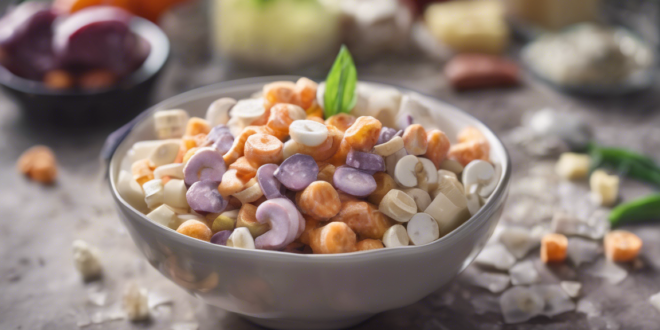Diet and Nutrition in Ulcerative Colitis: A Comprehensive Guide to Managing Your Health
Living with ulcerative colitis (UC) can be challenging, especially when it comes to diet and nutrition. Understanding how food impacts your condition is crucial for managing symptoms and improving overall quality of life. This comprehensive guide will explore five essential things you need to know about diet and nutrition when dealing with ulcerative colitis.
Understanding the Connection Between Diet and Ulcerative Colitis
Ulcerative colitis is a chronic inflammatory bowel disease that affects the large intestine, causing inflammation and ulcers in the digestive tract. While diet does not cause UC, it plays a significant role in managing symptoms and supporting overall health. The relationship between food and UC is complex, with individual responses varying from person to person.
Research suggests that certain dietary choices can either exacerbate or alleviate UC symptoms. Some patients experience increased inflammation or flare-ups after consuming specific foods, while others may find certain nutrients helpful in managing their condition. It’s essential to work closely with a healthcare professional to develop a personalized nutrition plan that meets your unique needs.
Key Nutritional Challenges for UC Patients
People with ulcerative colitis often face multiple nutritional challenges that can impact their overall health and well-being. These challenges include:
- Nutrient deficiencies due to malabsorption
- Increased nutritional requirements during flare-ups
- Potential weight loss or weight management issues
- Digestive system complications
- Medication interactions with nutrition
1. Identifying Trigger Foods and Personalized Nutrition
One of the most critical aspects of managing ulcerative colitis through diet is identifying personal trigger foods. While there’s no universal diet that works for all UC patients, keeping a detailed food diary can help you understand how different foods affect your symptoms.
Common trigger foods that may worsen UC symptoms include:
– Dairy products
– High-fiber foods
– Spicy foods
– Caffeine
– Alcohol
– Processed foods
– Foods high in saturated fats
Many patients find success with an elimination diet, carefully removing potential trigger foods and systematically reintroducing them to identify specific sensitivities. Working with a registered dietitian specializing in inflammatory bowel diseases can provide personalized guidance and support.
2. Essential Nutrients for UC Management
Maintaining proper nutrition is crucial for individuals with ulcerative colitis. Focus on consuming nutrient-dense foods that support healing and reduce inflammation. Key nutrients to prioritize include:
- Protein: Essential for tissue repair and maintaining muscle mass
- Omega-3 Fatty Acids: Help reduce inflammation
- Vitamins and Minerals: Particularly B12, D, and iron
- Probiotics: Support gut health and potentially reduce inflammation
3. Hydration and Electrolyte Balance
Proper hydration is paramount for UC patients, especially during flare-ups. Frequent diarrhea can lead to significant fluid and electrolyte loss, potentially causing dehydration and additional health complications.
Recommended hydration strategies include:
– Drinking plenty of water
– Consuming electrolyte-rich beverages
– Avoiding caffeine and alcohol
– Monitoring urine color and frequency
4. Nutritional Supplements and Medical Considerations
Many UC patients require nutritional supplements to address potential deficiencies. Common supplements recommended by healthcare professionals include:
– Multivitamins
– Calcium
– Vitamin D
– Iron
– Vitamin B12
Always consult with your healthcare provider before starting any new supplement regimen, as some may interact with medications or have potential side effects.
5. Developing a Sustainable Nutrition Plan
Creating a sustainable nutrition plan is essential for long-term UC management. This involves:
– Regular consultations with healthcare professionals
– Ongoing dietary assessment
– Flexibility and adaptation
– Stress management
– Holistic approach to health
Practical Tips for UC Dietary Management
1. Eat smaller, more frequent meals
2. Choose easily digestible foods during flare-ups
3. Cook vegetables to make them more digestible
4. Stay hydrated
5. Consider keeping a food journal
6. Be patient with yourself and your body
Conclusion: Empowering Yourself Through Nutrition
Managing ulcerative colitis through diet is a personal journey that requires patience, understanding, and professional guidance. While there’s no one-size-fits-all approach, by working closely with healthcare professionals and maintaining a proactive attitude, you can develop effective strategies to manage your condition and improve your quality of life.
Remember that every individual’s experience with UC is unique. What works for one person may not work for another, so remain open-minded and committed to finding the best approach for your specific needs.
 Good Calories Guide GoodCalories Guide focuses on nutrition, healthy eating, and overall wellness. The site offers practical insights into evidence-based dietary practices, including tips for specific lifestyles such as veganism, keto, and family-friendly meal planning. It also addresses unique nutritional needs for individuals with conditions like diabetes or food allergies, while providing quick and accessible recipes to make healthy living a sustainable and enjoyable choice.
Good Calories Guide GoodCalories Guide focuses on nutrition, healthy eating, and overall wellness. The site offers practical insights into evidence-based dietary practices, including tips for specific lifestyles such as veganism, keto, and family-friendly meal planning. It also addresses unique nutritional needs for individuals with conditions like diabetes or food allergies, while providing quick and accessible recipes to make healthy living a sustainable and enjoyable choice.


